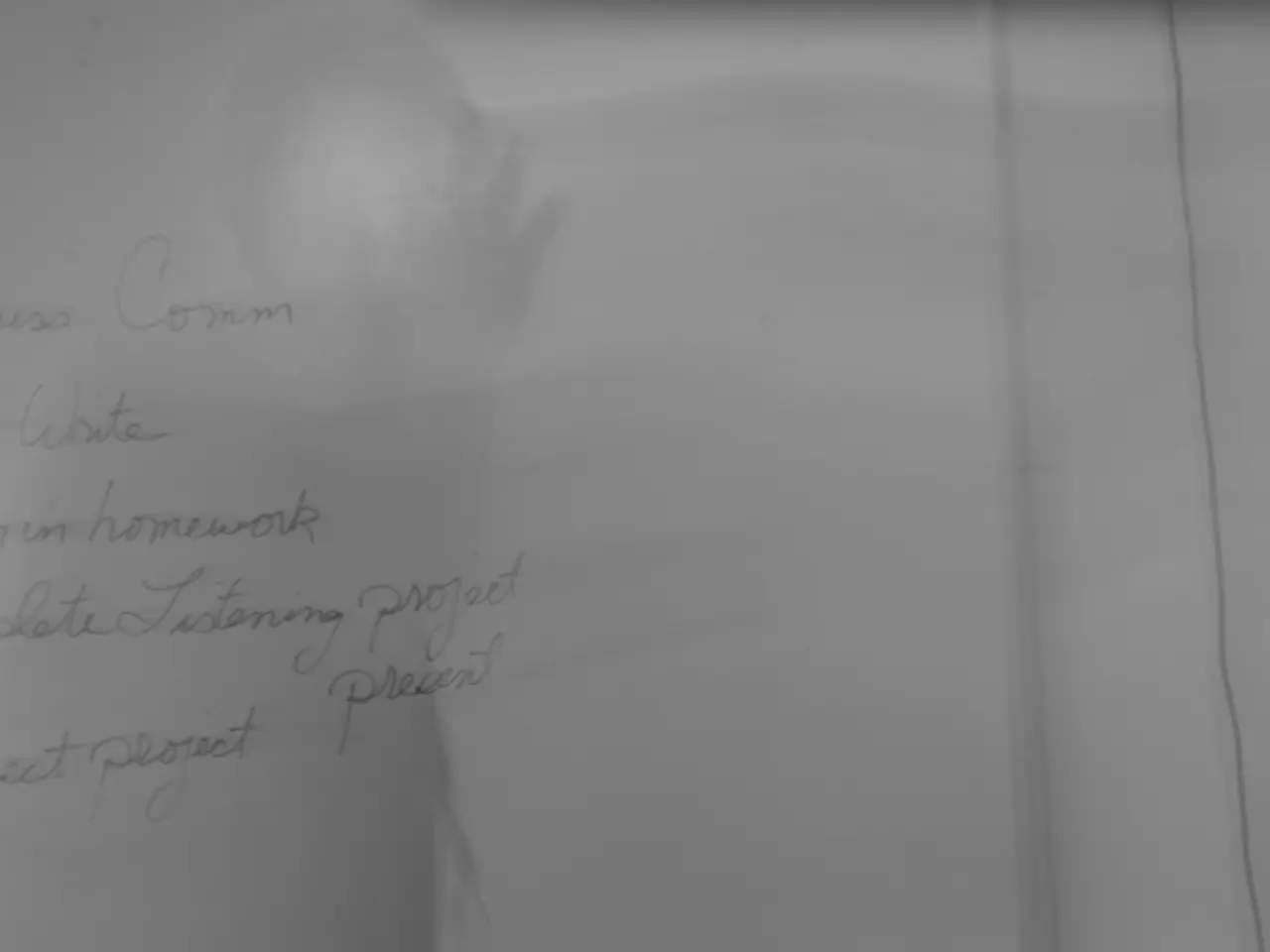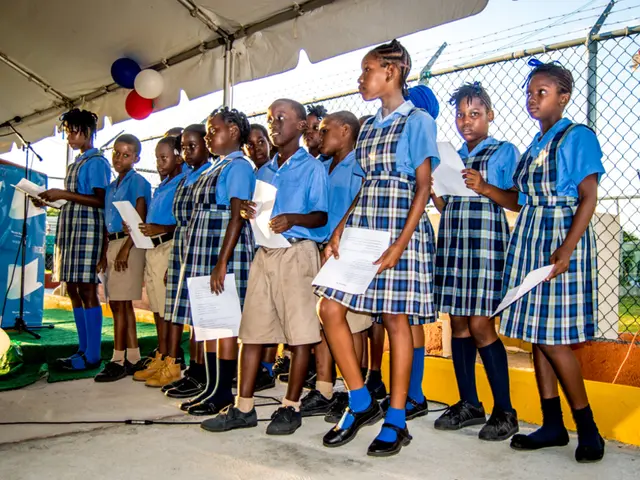Revised student loan forgiveness plan under Trump: Implications for debt cancellation for you
In a significant move, President Donald Trump has initiated changes to the Public Service Loan Forgiveness (PSLF) program, which could potentially exclude organizations involved in activities deemed to have a "substantial illegal purpose" by the Department of Education.
The draft regulations target activities related to illegal immigration, terrorism, "chemical and surgical castration or mutilation of children," child trafficking, illegal discrimination, and repeated violations of state laws. This approach could have major implications for immigrants and transgender youth organizations.
For instance, organizations that assist or provide services to immigrants could be excluded if their activities are classified as involving "illegal immigration," even if the services are legal under current law. This could disqualify employees at such organizations from making progress towards loan cancellation. Similarly, organizations providing legal support, counseling, or advocacy for transgender youth could be at risk of exclusion if the Department interprets their work as related to the mentioned activities.
Advocates and stakeholders have expressed concerns that these definitions are overly broad and could give the Department of Education sweeping authority to disqualify organizations based on politically charged interpretations of "illegal activities." This could potentially impact entire hospital systems, state governments, or any employer with diversity, equity, and inclusion policies if such policies are deemed to involve "illegal discrimination" or other targeted activities.
The proposed changes may lead to further shortages of doctors and nurses due to the potential loss of student loan forgiveness for employees of affected organizations. Over 1 million Americans have had loans cancelled through the program, and its cancellation allows the remaining debt of graduates after 120 monthly payments while working for the government. The program was created in 2007 to motivate graduates to enter jobs in the public sector.
The department's proposal requires a public comment period, which is expected to take effect in July 2026 before it gets properly finalized. Court judgements and other legal findings would also be considered, but the subjective authority on what is "illegal" has sparked fears.
The U.S. education secretary would have the final say on these matters, and the proposed changes could block a lot of student loans from being cancelled due to the removal of organizations tied to the administration's definition of illegal activities. Betsy Mayotte, president of the Institute of Student Loan Advisors, believes the policy changes are politically motivated and could be used as a tool for political punishment. Emeka Oguh, CEO of PeopleJoy, raises concerns about ambiguity in the department's definition of illegal activities, particularly in the context of education and diversity, equity, and inclusion initiatives.
- The proposed changes in the Public Service Loan Forgiveness (PSLF) program may significantly affect education-and-self-development organizations, such as those providing legal support, counseling, or advocacy for transgender youth, as they could potentially be excluded due to the Department of Education's broad interpretation of "illegal activities" like child trafficking and repeated violations of state laws.
- The draft regulations for the PSLF program could have far-reaching implications in general-news arenas, including politics, as organizations like hospitals and state governments with diversity, equity, and inclusion policies could be impacted if such policies are deemed to involve "illegal discrimination" or other targeted activities, potentially leading to further shortages of healthcare professionals and affecting millions of Americans seeking loan forgiveness.




